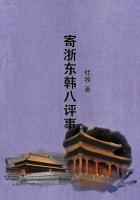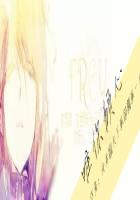It was growing dark, and the Sonora trail was becoming more indistinct before me at every step. The difficulty had increased over the grassy slope, where the overflow from some smaller watercourse above had worn a number of diverging gullies so like the trail as to be undistinguishable from it. Unable to determine which was the right one, I threw the reins over the mule's neck and resolved to trust to that superior animal's sagacity, of which I had heard so much. But I had not taken into account the equally well-known weaknesses of *** and species, and Chu Chu had already shown uncontrollable signs of wanting her own way. Without a moment's hesitation, feeling the relaxed bridle, she lay down and rolled over.
In this perplexity the sound of horse's hoofs ringing out of the rocky canyon beyond was a relief, even if momentarily embarrassing.
An instant afterwards a horse and rider appeared cantering round the hill on what was evidently the lost trail, and pulled up as I succeeded in forcing Chu Chu to her legs again.
"Is that the trail from Sonora?" I asked.
"Yes;" but with a critical glance at the mule, "I reckon you ain't going thar tonight."
"Why not?"
"It's a matter of eighteen miles, and most of it a blind trail through the woods after you take the valley."
"Is it worse than this?"
"What's the matter with this trail? Ye ain't expecting a racecourse or a shell road over the foothills--are ye?"
"No. Is there any hotel where I can stop?"
"Nary."
"Nor any house?"
"No."
"Thank you. Good-night."
He had already passed on, when he halted again and turned in his saddle. "Look yer. Just a spell over yon canyon ye'll find a patch o' buckeyes; turn to the right and ye'll see a trail.
That'll take ye to a shanty. You ask if it's Johnson's."
"Who's Johnson?"
"I am. You ain't lookin' for Vanderbilt or God Almighty up here, are you? Well, then, you hark to me, will you? You say to my old woman to give you supper and a shakedown somewhar to-night. Say I sent you. So long."
He was gone before I could accept or decline. An extraordinary noise proceeded from Chu Chu, not unlike a suppressed chuckle. I looked sharply at her; she coughed affectedly, and, with her head and neck stretched to their greatest length, appeared to contemplate her neat little off fore shoe with admiring abstraction. But as soon as I had mounted she set off abruptly, crossed the rocky canyon, apparently sighted the patch of buckeyes of her own volition, and without the slightest hesitation found the trail to the right, and in half an hour stood before the shanty.
It was a log cabin with an additional "lean-to" of the same material, roofed with bark, and on the other side a larger and more ambitious "extension" built of rough, unplaned, and unpainted redwood boards, lightly shingled. The "lean-to" was evidently used as a kitchen, and the central cabin as a living-room. The barking of a dog as I approached called four children of different sizes to the open door, where already an enterprising baby was feebly essaying to crawl over a bar of wood laid across the threshold to restrain it.
"Is this Johnson's house?"
My remark was really addressed to the eldest, a boy of apparently nine or ten, but I felt that my attention was unduly fascinated by the baby, who at that moment had toppled over the bar, and was calmly eyeing me upside down, while silently and heroically suffocating in its petticoats. The boy disappeared without replying, but presently returned with a taller girl of fourteen or fifteen. I was struck with the way that, as she reached the door, she passed her hands rapidly over the heads of the others as if counting them, picked up the baby, reversed it, shook out its clothes, and returned it to the inside, without even looking at it.
The act was evidently automatic and habitual.
I repeated my question timidly.
Yes, it WAS Johnson's, but he had just gone to King's Mills. I replied, hurriedly, that I knew it,--that I had met him beyond the canyon. As I had lost my way and couldn't get to Sonora to-night, he had been good enough to say that I might stay there until morning. My voice was slightly raised for the benefit of Mr. Johnson's "old woman," who, I had no doubt, was inspecting me furtively from some corner.
The girl drew the children away, except the boy. To him she said simply, "Show the stranger whar to stake out his mule, 'Dolphus," and disappeared in the "extension" without another word. I followed my little guide, who was perhaps more actively curious, but equally unresponsive. To my various questions he simply returned a smile of exasperating vacuity. But he never took his eager eyes from me, and I was satisfied that not a detail of my appearance escaped him. Leading the way behind the house to a little wood, whose only "clearing" had been effected by decay or storm, he stood silently apart while I picketed Chu Chu, neither offering to assist me nor opposing any interruption to my survey of the locality. There was no trace of human cultivation in the surroundings of the cabin; the wilderness still trod sharply on the heels of the pioneer's fresh footprints, and even seemed to obliterate them. For a few yards around the actual dwelling there was an unsavory fringe of civilization in the shape of cast-off clothes, empty bottles, and tin cans, and the adjacent thorn and elder bushes blossomed unwholesomely with bits of torn white paper and bleaching dish-cloths. This hideous circle never widened; Nature always appeared to roll back the intruding debris; no bird nor beast carried it away; no animal ever forced the uncleanly barrier; civilization remained grimly trenched in its own exuvia.
The old terrifying girdle of fire around the hunter's camp was not more deterring to curious night prowlers than this coarse and accidental outwork.















